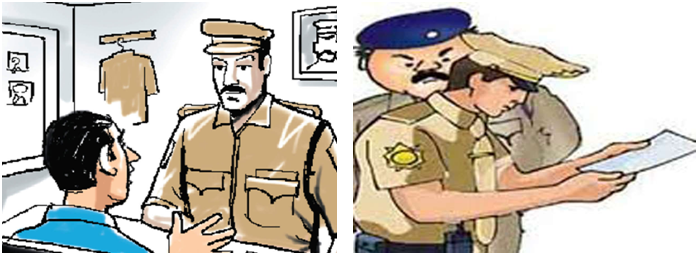Section – 123. Evidence as to affairs of State
No one shall be permitted to give any evidence derived from unpublished official records relating to any affairs of State, except with the permission of the officer at the head of the department concerned, who shall give or withhold such permission as he thinks fit.
This section is based on the principle that disclosure of any unpublished document would not be in the public interest. Basically this section is founded on the maxim “salus populi est suprema lex” which means that regard for public welfare is the highest law.
This section lays down that no person shall be permitted to give any evidence derived from unpublished public records relating to affairs of state. It also prohibits the disclosure of any evidence derived from unpublished official records
Exception to the privilege relating to the State Documents
Second half of the Section itself gives the exception that the officer as the head of the department concerned may give the permission for the production of the document, if he thinks fit, The privilege should be claimed generally by the Minister-in-incharge who is the political head of the department concerned, if not, the secretary of the department should claim the privilege
Section 123 read with Section 162
Section 123 has to be read together with section 162 . Section 162 provides that when a person has been summoned to produce a document, he should produce it even he has any objection to its production, and the court shall decide the matter of his objection, the court may inspect the document, unless it refers to matters of state.
In State of U.P. v. Raj Narain, [AIR 1975 SC 875], the court has held that there is residual power in court to decide whether the disclosure of a document is in the interest of public and for the purpose, if necessary to inspect the document and that the statement of head of the department that the disclosure would injure public interest is not final. The court further held: “It is now the well settled practice in our country that an objection is raised by an affidavit affirmed by the head of the department. The court may also require a Minister to affirm an affidavit. If the court is satisfied with the affidavit evidence that the document should be protected in public interest from production, the matter ends there.”
Section – 124. Official communications
No public officer shall be compelled to disclose communications made to him in official confidence, when he considers that the public interests would suffer by the disclosure.
Commentary
This section is designed to prevent the knowledge of official papers beyond the circle which would obtain knowledge of them in confidence whether the confidence was express or implied
Joint Reading of Section 123 and 124
Sections 123 and 124, the state was empowered to suppress any information from disclosing, Besides these two sections, the then British Government enacted the Official Secrets Act, 1923. These provisions are for the suppression of the people’s voice and rights and to put them in darkness.
The constitution provided freedom of speech including freedom of information in Article 19(1) (a). After a long struggle the Indian Parliament has enacted The Freedom of Information Act, 2002. However, Sections 123 and 124 are not yet repealed nor amended so far.
Section – 125. Information as to commission of offences
No Magistrate or Police – Officer shall be compelled to say whence he got any information as to the commission of any offence, and no Revenue- Officer shall be compelled to say whence he got any information as to the commission of any offence against the public revenue.
Explanation –“Revenue-officer” in this section means any officer employed in or about the business of any branch of the public revenue.]

Section 125 on the basis of public policy protects the information given to magistrates or to police officers about the commission of offences.
This provision is beneficial for the informers from any threats or danger to life.
It gives such protection which lays that no Magistrate or police officer shall be compelled to disclose the name of an informer








No comment